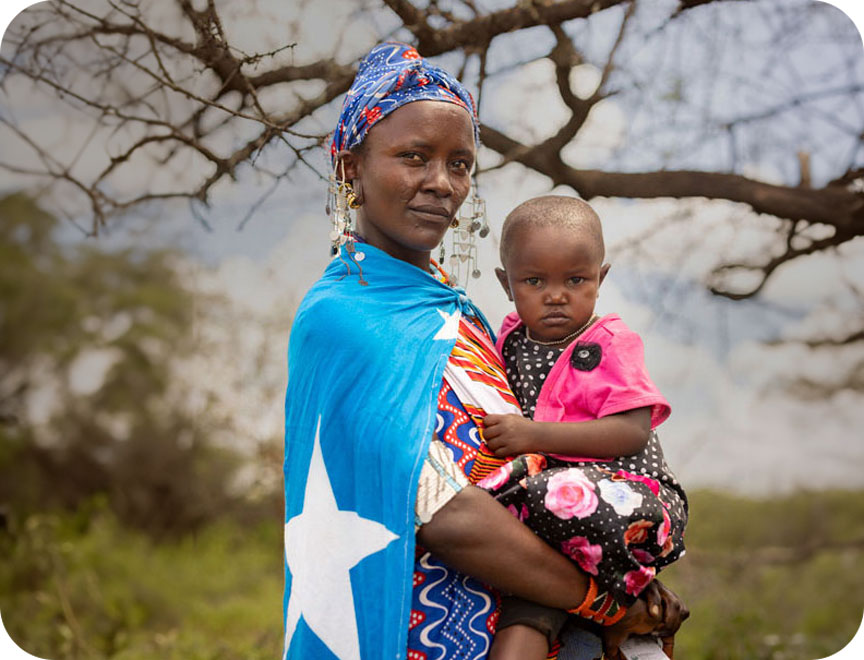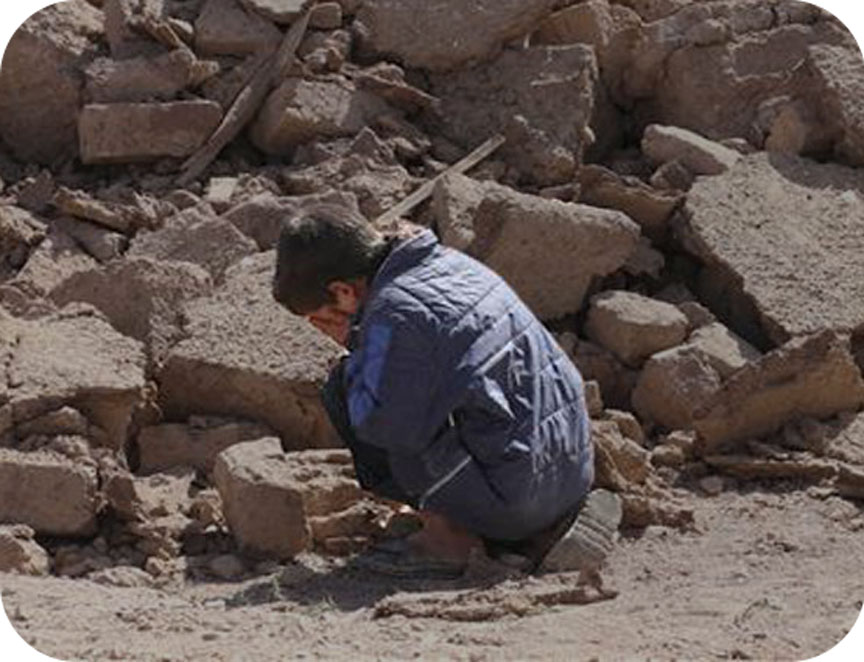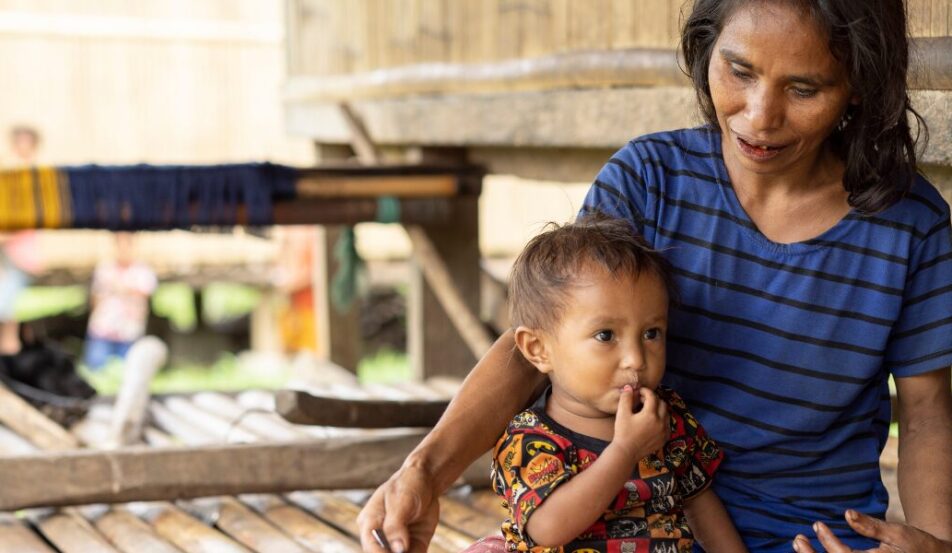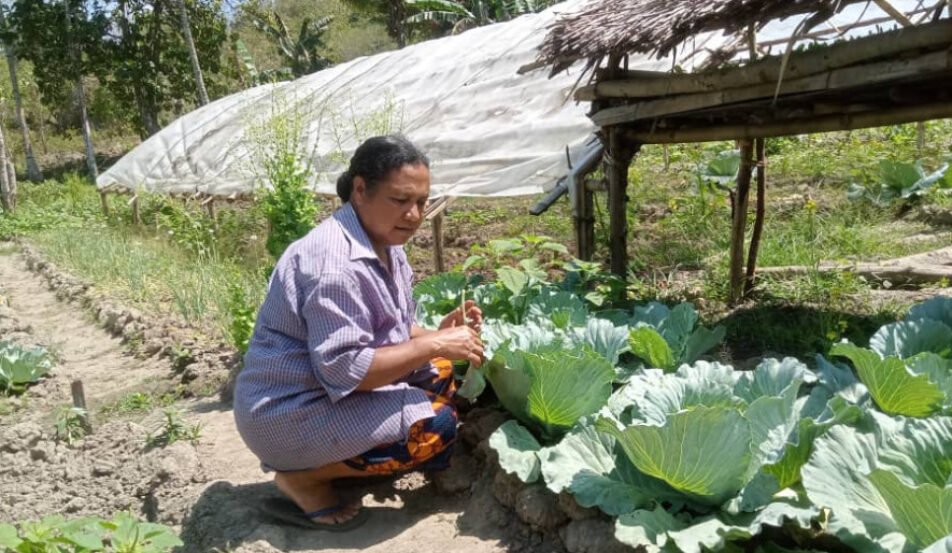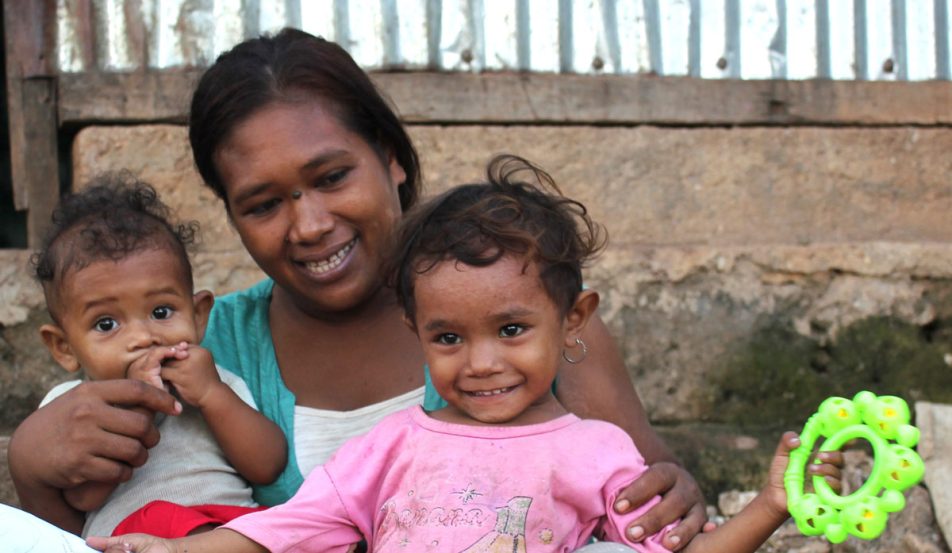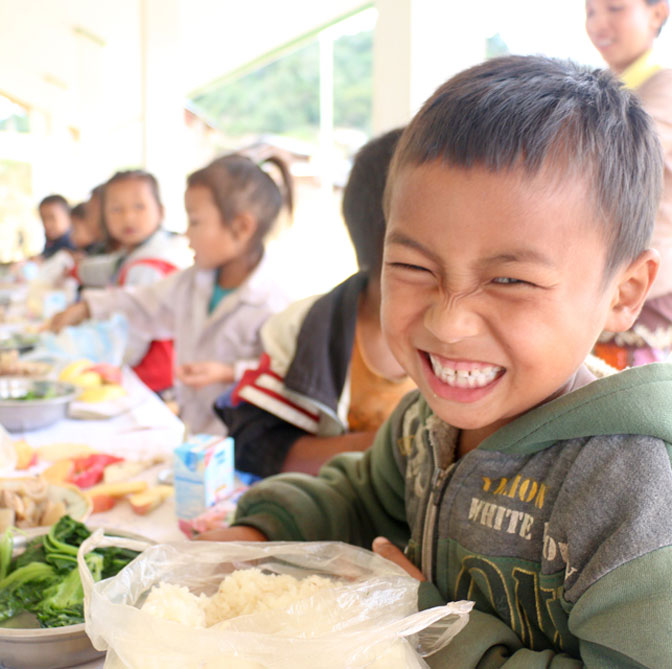Cooking up change in Timor-Leste
“The future of our children’s health – and ours – lies in our hands,” said Teofila, a mum and volunteer from a rural community in Lautem, Timor-Leste.
Earlier this year, Lautem Health Centre became more than just a place of care; it was alive with energy and anticipation as mums, volunteers and health workers gathered to celebrate World Health Day. For the women of Lautem, the day wasn’t just about speeches or slogans. The theme this year, ‘Healthy Beginnings, Hopeful Futures,’ provided a fruitful opportunity to reflect on their progress, share achievements and look ahead to the healthier future they’re building for their children and community, together.
As the event unfolded, it became clear: today was a day of action. At the heart of the health centre, a cooking competition was underway, with six teams of mums and volunteers preparing locally sourced meals. Each dish reflected the knowledge they’ve gained about nutrition and health. The competition wasn’t just about cooking; it symbolised the community’s united effort to address persistent challenges like malnutrition and poor infant health. It was a celebration of their achievements and a powerful reminder of the work still ahead.
Tackling health challenges together
While maternal mortality rates in Timor-Leste have improved, the country still faces challenges, with the maternal mortality ratio at 204 deaths per 100,000 live births in 2023, according to the World Health Organization (WHO).
In Lautem, however, real progress is being made. Health volunteer groups, once disbanded due to the end of projects and changes in government priorities, have been reinstated with ChildFund’s support. These groups, mostly made up of women, have been trained in maternal and child health, nutrition and hygiene, and are now helping to spread this knowledge across their communities.
The result? More mums are choosing to give birth in health centres, and families are becoming more aware of the importance of basic health practices like nutrition and hygiene. With regular training for volunteers, these efforts are continuing to grow and making a lasting difference in the region.

Community wellbeing, driven by women
Women in Lautem are taking charge; learning, advocating and leading the way to a healthier future. Below, three local mums share their stories.
A volunteer with a mission
Teofila, 40, is more than just a volunteer – she’s a lifeline for her village. As a member of the Mothers Support Group, a collective of local women focused on improving maternal and child health, Teofila plays a pivotal role in driving positive change in Lautem.
“I’ve always believed that we need to support each other as women,” she said. “That’s why I’ve committed to helping other mums in my village.” With guidance and training provided by ChildFund, Teofila leads health education sessions covering nutrition, breastfeeding, hygiene and maternal health. Through ChildFund’s training, Teofila has developed the skills and confidence to lead these vital health sessions, creating a ripple effect of awareness throughout her community.
“When we spot malnutrition, we act immediately,” Teofila explained. “We get them into the NERS program for support.” (The Nutrition Education and Rehabilitation Support program focuses on identifying and managing malnutrition early.)
Teofila is committed to educating mums on the importance of nutrition but also acknowledges the challenge of affordability. “Many mums know what nutritious food to feed their children, but they can’t always afford it,” she said.
To address this, Teofila encourages families to grow their own vegetables at home. “Many families can’t afford to buy fresh produce, so we promote growing their own vegetables in their backyards or small vegetable patches,” she explained. “This way, they have direct access to fresh, nutritious food without the cost.”
“When we spot malnutrition, we act immediately.”
Teofila also advocates for families to consume the animals they raise – such as chickens or goats – rather than selling them to buy processed foods. “By eating what they raise, families can improve their diet without spending money on processed foods that are often less nutritious,” she added.

Despite the challenges, Teofila is determined to bring change. She travels long distances to visit mums, helping them access vital information and resources. She also encourages women to give birth at health centres for the safety of both mum and child, in line with WHO recommendations that skilled birth attendance drastically reduces maternal and newborn mortality.
“Some women live in remote areas and do not have access to essential health information,” said Teofila. “I travel to them and explain that giving birth at a health centre is the safest option, as health professionals can provide the necessary support, especially in emergencies.”
A proud moment for Iria
The cooking competition was an important opportunity for Iria, a 31-year-old mum. For her, it wasn’t just about winning – it was a chance to showcase what she had learnt and to continue supporting her family with healthy meals. Her team prepared two dishes: porridge with local chicken, spinach and pumpkin, and another with fish, spinach and tomatoes.
“When the judges asked us about the purpose of each ingredient on our menu, I explained that chicken is a source of protein which helps with a child’s growth and development. Rice provides energy to strengthen a child’s body. We also served ripe bananas as dessert” said Ira.
“For us, the challenge is often finding the right ingredients. Garlic’s rare, and spinach can be hard to find. But when we can, we always try to make nutritious food for our children.”
Despite feeling a bit nervous, Iria’s team took first place in the competition. “We won because we worked well together. Everyone knew their role, and we supported each other,” she said. “It felt like a great achievement.”
As winners, Iria’s team was awarded maternal kits filled with essential items like blankets, clothes, thermos flasks and toothbrushes. These kits are vital for new mums, especially when last-minute preparation is difficult due to urgent labour or distance from health facilities.
A first-time participant, a lifelong learner
Santina, a mum of six, made a strong impression at her first World Health Day event. Despite attending only one health promotion session, she was the first to answer during the nutrition-focused quiz. She said that she’s put her newfound knowledge, and is continually looking for ways to improve her family’s wellbeing.
“I always try to cook nutritious meals for my kids using whatever we have at home. When I was pregnant, I made sure to visit the health centre regularly because I knew it was important.”
Santina’s commitment to her family’s health became even more personal after her niece tragically passed away during a home birth. “I don’t want that to happen to anyone in my family,” she shared. “Accessing health services is critical.”
“I always try to cook nutritious meals for my kids using whatever we have at home. When I was pregnant, I made sure to visit the health centre regularly because I knew it was important.”

More work lies ahead
As the event came to a close, attendees were in a reflective mood, speaking about their shared responsibility to improve community wellbeing.
“We all have a role in making sure our children are healthy,” said Iria. “This is just the beginning. I want to share what I’ve learnt with others in my village.”
“We all have a role in making sure our children are healthy.”
Teofila remains hopeful about the future. “More mums are visiting health centres, they’re feeding their children better, and they’re improving hygiene at home. We’ve made progress, but there’s always more to do.”
The journey is far from over, but with continued support and action, a healthier future for Lautem families is within reach.

















